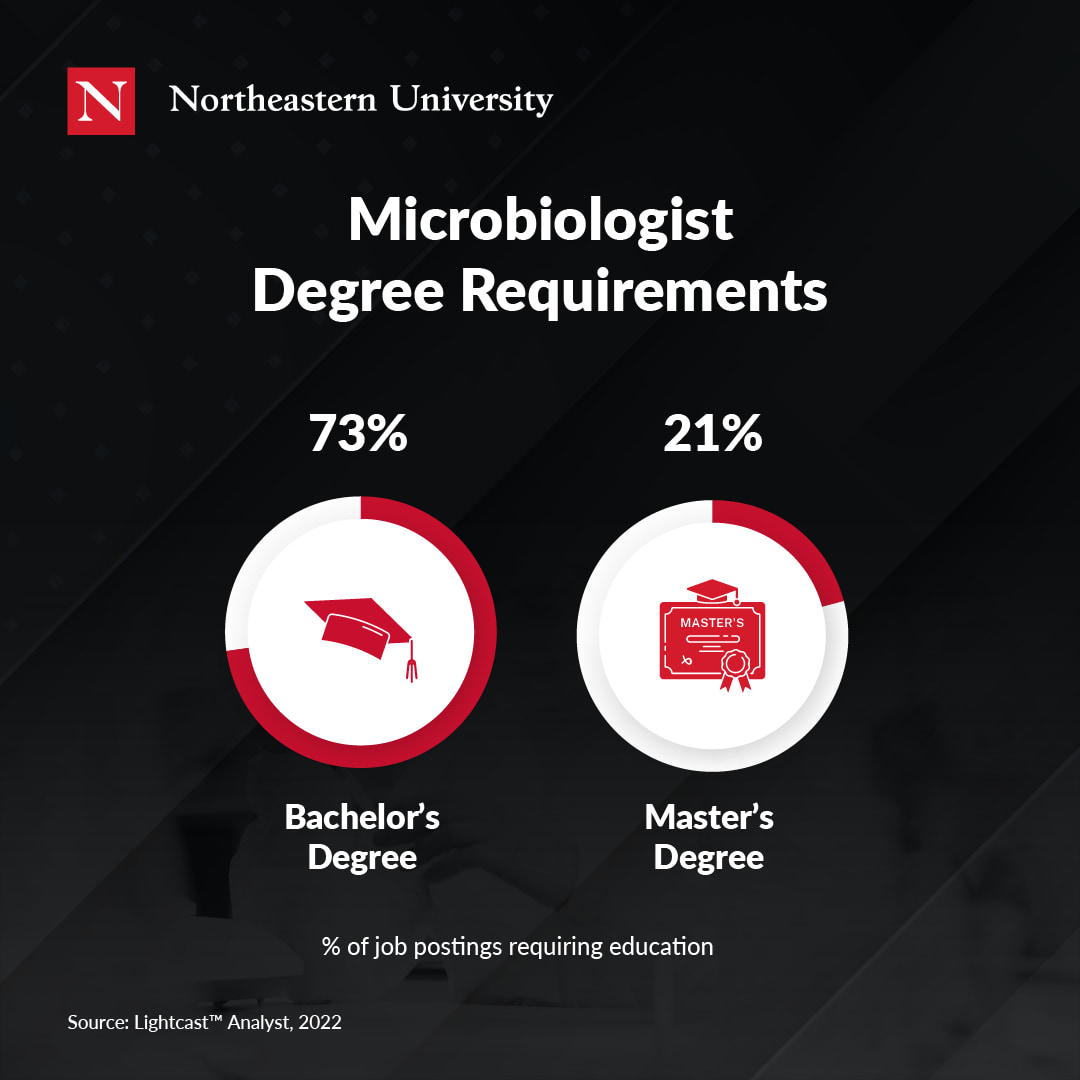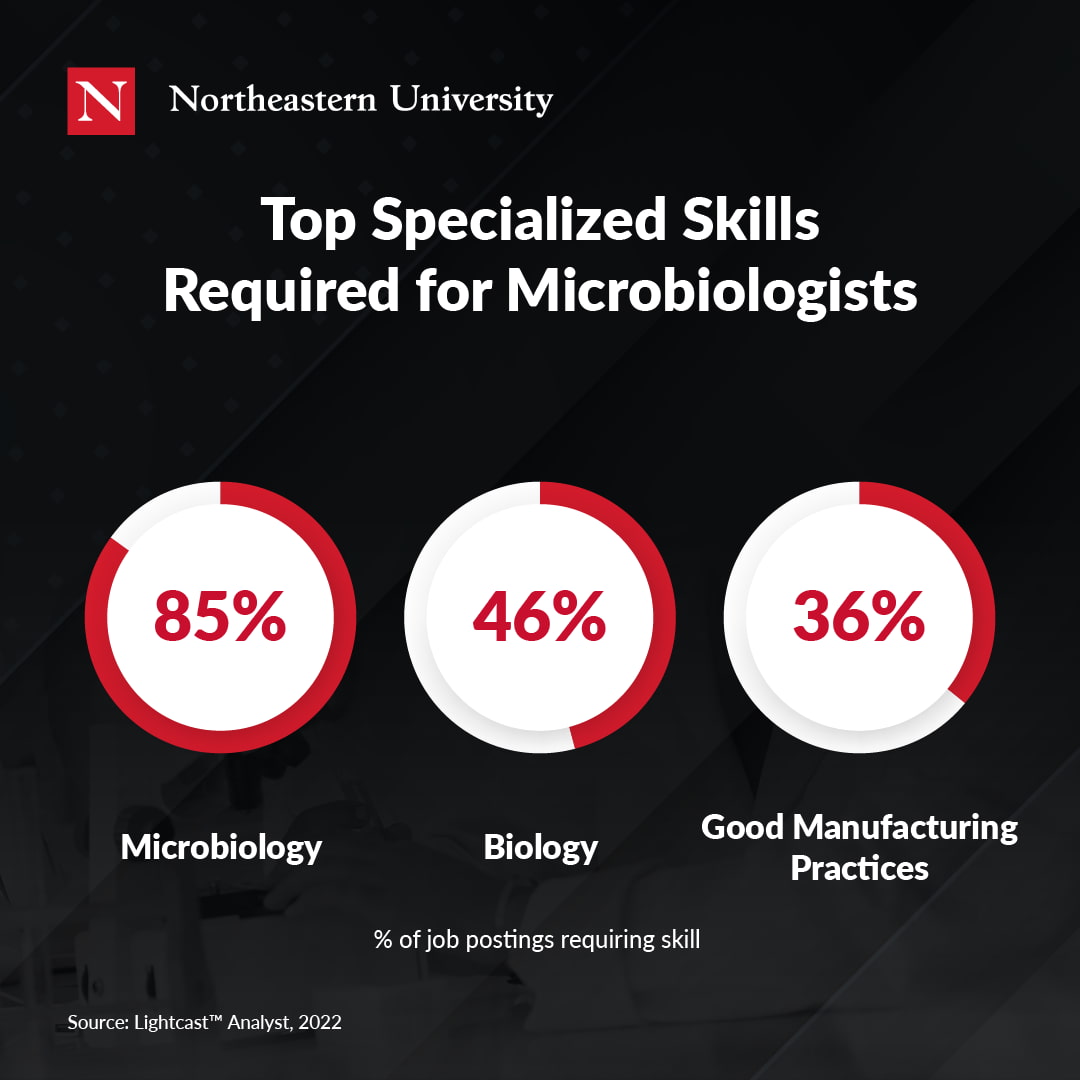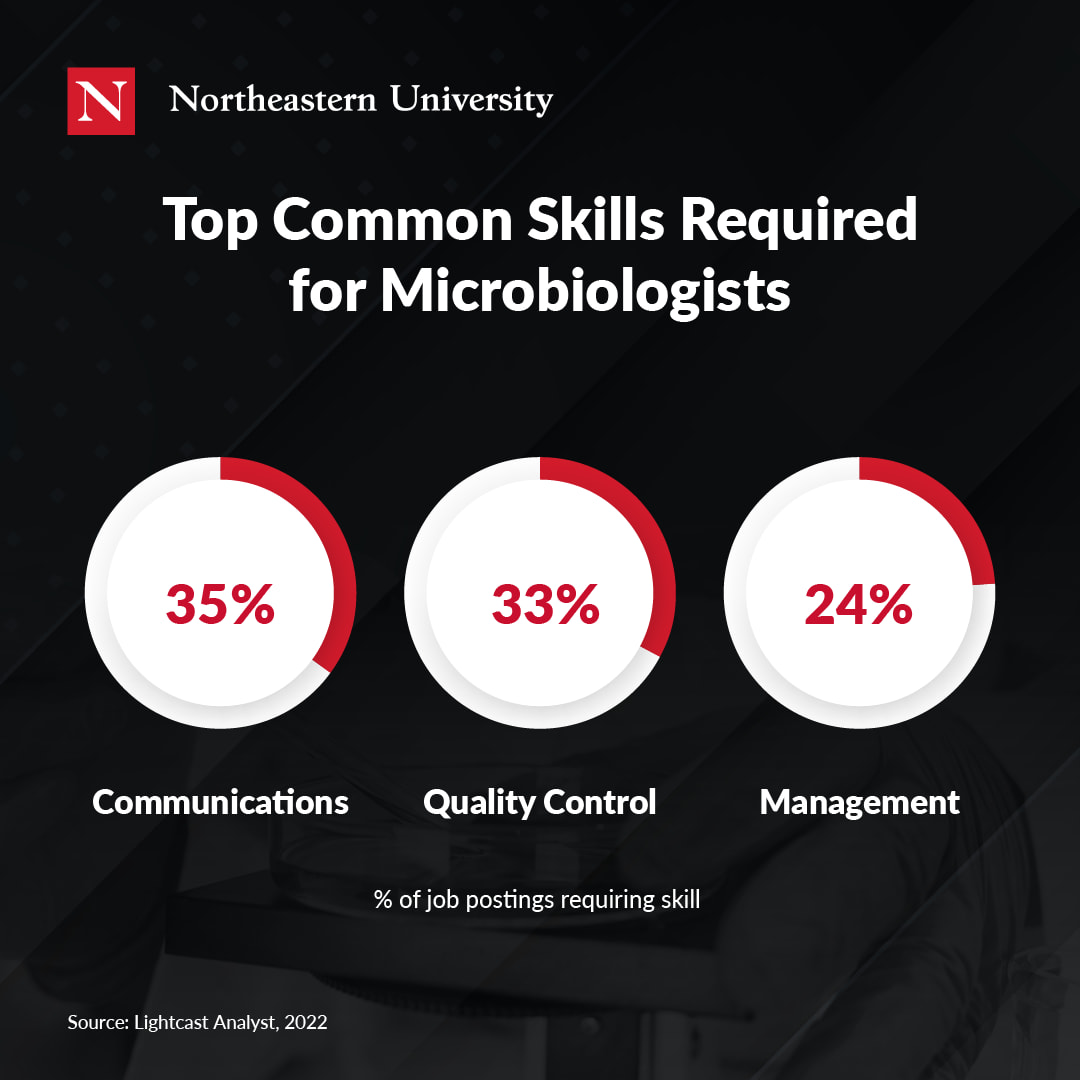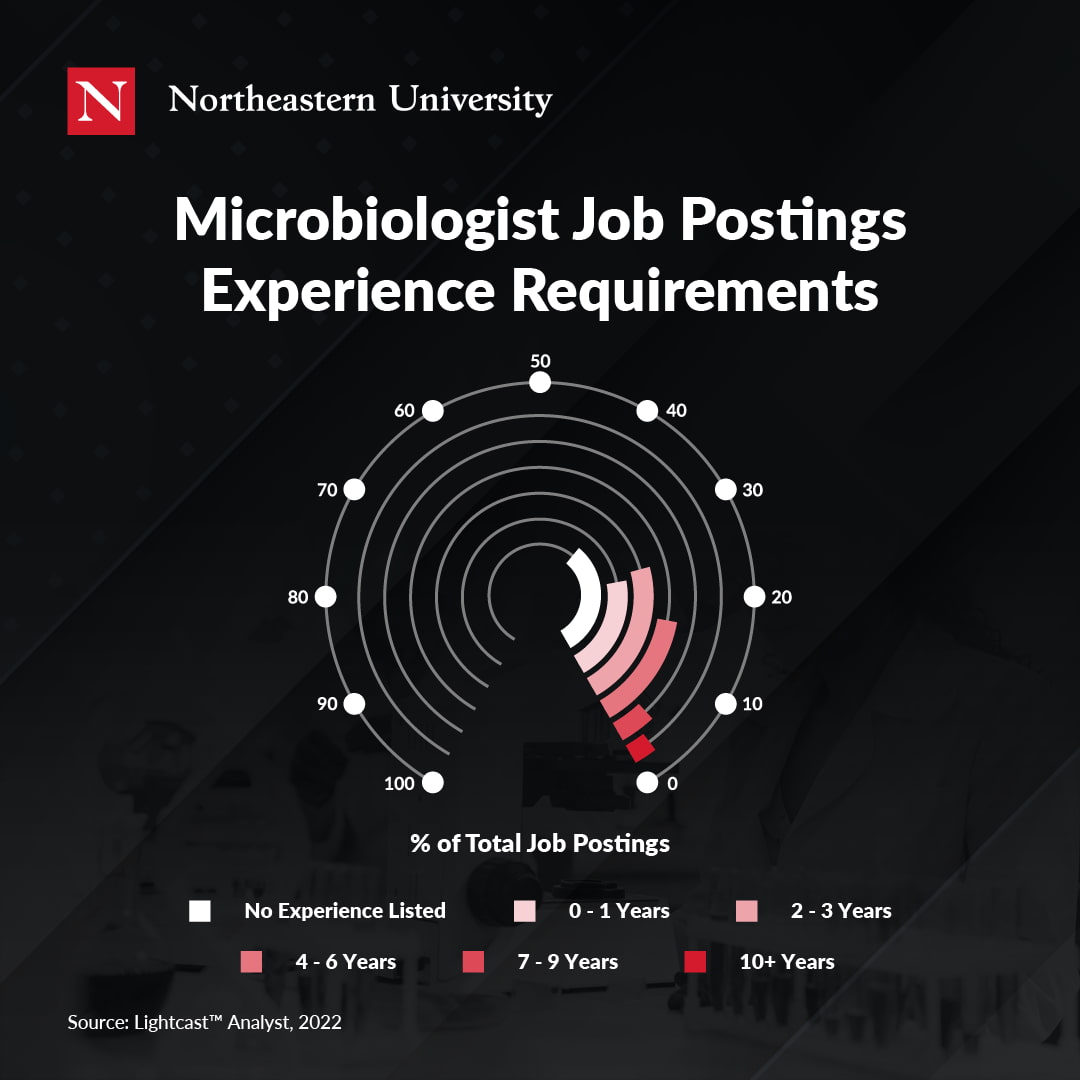The field of bioinformatics offers many interesting and exciting career paths for those with a curious, analytical, and detail-oriented mind. By combining data analytics and biology, the field lends itself to jobs in several industries, including computer programming, Big Data, and biology. For those interested in the sciences, microbiology could be a rewarding profession for you.
For those interested in becoming a microbiologist, here’s everything you need to know about the field, how to become one, and what you need to succeed in the profession.
What Is Microbiology?
Microbiology combines technical and scientific knowledge with creative experimentation and problem-solving to address some of the world’s most difficult challenges. It studies microorganisms, such as bacteria, fungi, viruses, and algae to understand how they interact with the greater ecosystem. Although these organisms are too small to be seen with the naked eye, microbiologists understand the sizable role they play in industries such as public health, natural resource management, agriculture, and chemical engineering.
What Do Microbiologists Do?
Microbiologists conduct research and experiments with microorganisms to understand their traits and functions. They primarily work in labs growing, studying, and classifying microorganisms; documenting their findings to gain support for their research. Through experimentation, microbiologists also discover ways to use microorganisms to improve human and environmental health.
Since microbiology is part of the larger discipline of bioinformatics, skills like computer programming and data analysis are applied to biological sciences to develop real-world solutions. Therefore, the specific goals of microbiologists depend on the industry and environment they work in. For example, clinical microbiologists study illnesses related to microorganisms, while others work in environmental microbiology and focus on soil or water treatment.
How To Become a Microbiologist
Microbiology is a highly technical field. Depending on the specialization you choose, this career has specific educational, skill set, and experience requirements for entry.
Advance Your Education
Earning a degree in microbiology or a related field is an essential first step to becoming a microbiologist. According to our analysis of job postings data, around 73 percent of microbiologists have a bachelor’s degree, while 21 percent hold a master’s. This number is an excellent indicator that getting the right education is essential to the industry.

Undergraduate degree programs in microbiology often incorporate a large amount of lab experience, while covering topics like molecular and cellular biology, microbial genetics, virology, and biochemistry. While this education will give you the basics of microbiology, a master’s degree is necessary for those who are interested in working in specialized categories such as research or academia. Ultimately, graduate students who earn an advanced degree are offered more career mobility and longevity.
Obtain the Right Skills
Microbiologists have different required skill sets based on their research and concentration. Despite these differences, however, there are a number of skills that employers expect microbiologists to obtain through education or previous industry experience.
Top Specialized Skills
Microbiology is a science-based discipline. Therefore, it isn’t surprising that microbiologists should have proficiency in:

- Microbiology: An in-depth knowledge of microscopic organisms and their roles in various environments or applications, as well as experience handling microorganisms and equipment in a lab
- Biology: Experience monitoring the impact of microorganisms on other living things to understand the biological structure, function, development, and ecosystems of all living organisms
- Good Manufacturing Practices (GMP): An understanding of the standards and procedures for controlling product quality and minimizing the risk of harmful agents, particularly in pharmaceutical manufacturing
Top Common Skills
Even though this career is science-driven, employers still expect microbiologists to possess the following skills:

- Communications: Interpersonal skills to collaborate with a wide variety of scientists, public health professionals, investors, and administrators, as well as strong written communication skills for roles that involve frequent research, reports, and publishing
- Quality Control: Attentiveness and proper use of safety protocols when handling high-risk materials to ensure reliable quality control, as well as consistency in how experiments are conducted, monitored, and documented
- Management: An understanding of equipment handling procedures, operations, training, computing, compliance standards, systems analysis when managing a lab and fellow technicians
Get Certified
As with many career paths, microbiologists can obtain industry-recognized certifications to demonstrate proficiencies and stand out in the job market. For example, American Medical Technologists (AMT) offers several certifications for allied health professions, such as medical laboratory technician and molecular diagnostics. The American Board of Medical Microbiology (ABMM) certifies doctoral-level professionals who plan to work in public health or medical microbiology as lab directors.
Microbiologists in government and military positions often need to apply for security clearances that are specific to the environments they work in or the types of materials and data they handle. If they are entrusted with classified information that affects natural security, many are responsible for following biosafety practices that are essential to public health management.
Not all qualifications are mandated for every job, and licensure requirements can differ by state. Despite this universal need to pursue certifications before entering the field, however, you should always research the roles you’re most interested in to find out what qualifications are required.
Seek Out Experience Opportunities
Experience is always an invaluable asset to any student, but the amount of experience needed largely depends on the type of role and the breadth of responsibilities associated with the industry.
Most accredited microbiology degree programs provide extensive lab work experience. Therefore, many entry-level jobs don’t typically require additional experience. This trend is clearly reflected in job postings data, which reports that:
- 21 percent of microbiologist job postings require zero to one year’s experience
- 22 percent require two to three years’ experience
- 16 percent require four to six years’ experience

Only four percent of recent microbiologist job postings require more than 10+ years of experience.
Consider Pursuing a Master’s Degree
Earning a master’s degree can lead to more career opportunities and higher-paying roles. Graduate programs help you increase your skill set and gain more experience working with real scientists on projects that are similar to those in the industry.
Pursuing a subfield, conducting independent research, maintaining lab samples, and recording your findings are common course requirements for graduate programs, offering students well-rounded exposure to the responsibilities of a microbiologist. By choosing a reputable institution, you’ll also get assistance finding high-quality internships to further expand your training and knowledge.
While a master’s degree isn’t required to get started in the field, microbiologists with advanced education are able to move into managerial or lead researcher roles quickly. If your time of entry into the field is a concern, consider Northeastern’s MS in Biotechnology program. This can give you the education, skills, and experience needed to quickly become a microbiologist.
Want to learn more about what Northeastern has to offer? Check our biotechnology program page to see what program works best for you.






Related Articles
Compliance Specialists: Who They Are and What They Earn
Science or Science Fiction? The Future of Personalized Medicine
In-Demand Biotechnology Careers Shaping Our Future